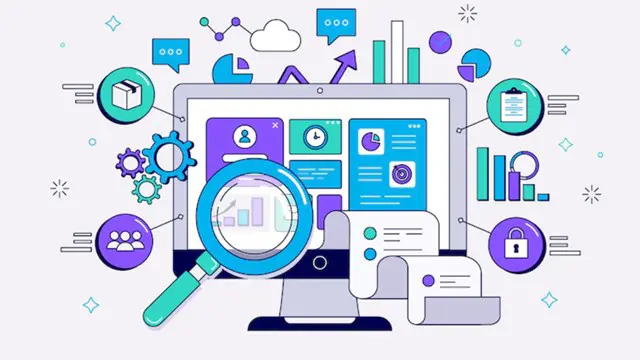
Master Data in SAP (basic to advanced)
Self-paced videos, Lifetime access, Study material, Certification prep, Technical support, Course Completion Certificate
Uplatz
Summary
- Reed courses certificate of completion - Free
- Uplatz Certificate of Completion - Free
Add to basket or enquire
Overview
Uplatz offers comprehensive training on SAP Master Data module. This is self-paced (video-based) online course. You will be awarded Course Completion Certificate at the end of the course.
SAP Master Data refers to the core data that is used as a base for any transaction in SAP. For any activities such as production, transferring stock, selling, purchasing, physical inventory management, etc., it requires certain master data to be maintained.
Data stored in SAP is categorized as
a) Master Data,
b) Transactional Data
Example of Master Data:
a) Material master data
b) Customer master data
c) Vendor master data
d) Pricing/conditions master data
e) Warehouse management master data (storage bin master data)
Material master records contain the information of materials that an organization purchases, manufactures, or sells. Vendor master record contains the information about vendors – address, financial data, payment terms, purchasing data such as currency, order value. Purchase info record consists of detailed information about materials and vendors supplying the required materials. Source list is a type of master data that determines the preferred sources of supply for a material. In SAP, material master data refer to all the material master records, which are stored in SAP system. The material master is the central source of information for a material related to several application area (Purchasing, storage, accounting, sales, etc) based on material type. In SAP MM, material master data is maintained at plant level and accounting information is maintained at valuation area level. The valuation are at organization level at which material are valuated. The valuation are can be be a plant or a company code.
Master data in SAP is the core data of an enterprise that exists independently of specific business transactions and is referenced in business transactions. It builds the foundation for the smooth execution of business processes and well-informed business decisions. With reference to material management module, the business users in purchase department maintains the following material master data:
- Material master records
- Vendor master records
- Purchase info records
- Source list records
- Quota arrangement records
- Service master record
- Batch master record
- Condition record, etc.
There are important configuration steps in Material Master like defining Material Types, Number ranges, Field selection, Quantity and value update, etc.
Curriculum
Course media
Description
SAP Master Data - Course Syllabus
MASTER DATA
a. Basics of Master Data
b. Significance of Master Data
c. Usage of Master Data
I. Material Master
i. What is Material Master
ii. Views
iii. Subscreens
iv. Fields
v. Maintenance of material data in the SAP system
vi. Prerequisites for creation of Material Master Record
vii. Creation of Material Master Record
viii. Changes to Material Master Record
ix. Other end user activities in Material Master
x. Configuration of Material Master
a. Screen Sequence
What is Screen Sequence
Significance and usage of Screen Sequence
b. Screen Reference
What is Screen Reference
Creating and using Screen Reference
c. Field Selection
What is Field Selection
Criteria for defining field selection
d. Field Reference
What is Field reference
Creating and using field references
e. Material Type
What is Material Type
Usage of Material Type in the SAP system
Defining and using Material Types
f. Assign Number Range to Material Type
g. Material Number formatting
h. Material Groups
i. Purchasing Group
j. Purchase Value Key
k. Shipping Instruction
II. Vendor Master
i. Who is a Vendor
ii. What is Vendor Master Record
iii. Division of Vendor Master data
General Data
Company Code Data
Purchasing Data
iv. Vendor Classification
v. Types of Vendor
Regular Vendor
One-time Vendor
Accounting Vendor
Purchasing Vendor Central Vendor
vi. Prerequisites for creating Vendor Master Record
vii. Vendor Account Group and its significance
viii. Creation of Vendor Master Record
ix. Changing the Vendor Master Record
x. Other End user activities of Vendor Master
xi. Configuration of Vendor Master
a. Vendor Field Selection
What is Vendor field selection
Significance of vendor field selection
Criteria for maintaining vendor field selection
b. Assignment of Number Ranges
c. Screen selection for Vendor Master records
d. Vendor Industries
e. Terms of Payment
Who is this course for?
Everyone
Requirements
Passion and determination to achieve your goals!
Career path
- SAP MM Consultant
- SAP Master Data Analyst
- SAP Master Data Consultant
- SAP Consultant
- SAP End User
- SAP Master Data Lead
- Project Manager
- Master Data Technician (SAP)
- SAP Master Data Administrator
- SAP Super User and Master Data Specialist
- Master Data Assistant
Questions and answers
Are there any qualifications or certificate with this course?
Answer:Hi Alfie Yes, you will receive a globally recognized Course Completion Certificate issued by Uplatz. Tanay Team Uplatz
This was helpful.This is a follow up question: How much is the SAP server access and how do I purchase it?
Answer:Hi Patie In reed courses, if you search for "uplatz sap server", you'll find something like below listed for e.g. SAP Server (ECC) access for practice - 1 month SAP Server (ECC) access for practice - 3 months SAP Server (ECC) access for practice - 6 months The current prices for the ECC (MM/PP/PM/WM, etc.) server access are: 1 month - £40 3 months - £100 6 months - £200 Hope that helps. Team Uplatz
This was helpful.Do I need to have SAP access, inorder to do this course?
Answer:Hi Patie You can do the course without SAP access but if you really wish to learn well and practice, then you will need SAP access. The server access can be purchased separately. Team Uplatz
This was helpful.
Certificates
Reed courses certificate of completion
Digital certificate - Included
Will be downloadable when all lectures have been completed
Uplatz Certificate of Completion
Digital certificate - Included
Course Completion Certificate by Uplatz
Reviews
Currently there are no reviews for this course. Be the first to leave a review.
Legal information
This course is advertised on reed.co.uk by the Course Provider, whose terms and conditions apply. Purchases are made directly from the Course Provider, and as such, content and materials are supplied by the Course Provider directly. Reed is acting as agent and not reseller in relation to this course. Reed's only responsibility is to facilitate your payment for the course. It is your responsibility to review and agree to the Course Provider's terms and conditions and satisfy yourself as to the suitability of the course you intend to purchase. Reed will not have any responsibility for the content of the course and/or associated materials.


